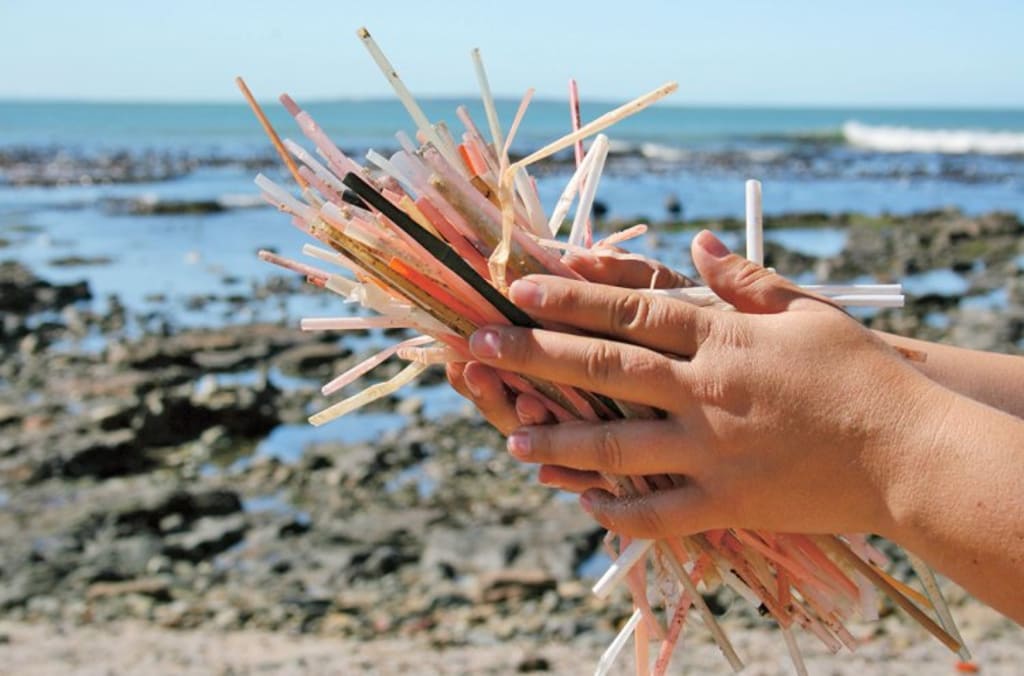Why We Should Unite in Sensitizing People Against the Unnecessary Use of Plastic Straws
Each American uses and throws away at least 2 plastic straws per day according to the National Park Service. That means that an average American litters the environment with over 700 straws per year.

Although some people use straws for good reasons such as feeding the sick and the disabled, the majority use straws for, well, not-so-important purposes such as siphoning carbonated drinks in restaurants or to get ketchup flowing from its bottle. What many don’t understand, however, is that plastic straws are the single biggest threat to environmental conservation.
If you are a serial plastic straw user, it is important to consider these three facts:
- Straws aren’t recyclable due to their small sizes.
- They are rarely reused because, after all, they are inexpensive and are given freely in restaurants and fast food joints.
- They are non-decomposable.
The three facts, regrettably, make plastic straws the top contributor of plastic debris in landfills and oceans around the world, posing a great environmental risk to both aquatic plants and marine animals.
What Do the Stats Show?
The Ocean Conservancy's International Coastal Cleanup—an environmental conservancy group that mobilizes volunteers to clean beaches around the world- recently announced that they have been collecting more than three million plastic straws in every beach clean-up exercise they organize. But, hold onto your hat, that is just the tip of the iceberg according to the organization’s director Mr. Nick Mallos. The director reports that over eight metric tons of plastic straws are thrown into the ocean every year.
It is worth noting that the ocean is home to thousands of marine species that can swallow multiple plastic straws at a go, but their digestive system isn’t strong enough to digest plastic. That is to say that with every plastic straw you use and dispose, there is a marine animal fighting for its life somewhere on the planet. That’s the saddest thing any environment conservation enthusiast will hear in a lifetime.
Now think about this: Each American uses and throws away at least two plastic straws per day according to the National Park Service. That means that an average American litters the environment with over 700 straws per year. That’s not all. With a life expectancy of 78 years, one American disposes more than 50,000 plastic straws in his/her lifetime.
Considering that America has a population of 300+ million people, the extent to which plastic straws jeopardize our environment should never be underestimated. The math is simple, really. In less than an hour from the time you are reading this, water bodies in the US will be suffocating with an extra 50 million plastic pollution items. That is in the US alone. Now think about the estimated global population of 7.7 billion people and redo the math. Clearly, the figures are heartbreakingly huge.
Besides Poisoning the Sea, Which Other Effects of Plastic Straw Pollution Should You Worry About?
Though small in size, plastic straws block waterways and cause groundwater pollution when they accumulate. They also contain benzene, vinyl chloride, ethylene oxide, and xylene, all of which are carcinogenic and very harmful to human life. Reliable studies also confirm that chemicals from polypropylene are detrimental to a person’s estrogen levels especially when they leach into liquids.
The most disheartening fact is that those harmful chemicals stay in the environment for thousands of years, all along killing people and animals.
Parting Shot…
Because it is our duty to protect the environment and safeguard the health of our future generations, it is imperative that we all unite in sensitizing people against plastic straws. Only use a plastic straw when you must, particularly if you have health issues that necessitate their use.
If you are a parent, teach your kids the importance of drinking beverages from glass bottles or cups made from environment-friendly materials. Without a doubt, straws are more of a convenience than a necessity, which means that it will be easy to stop using them immediately you choose to. Make the right choice today.






Comments
There are no comments for this story
Be the first to respond and start the conversation.